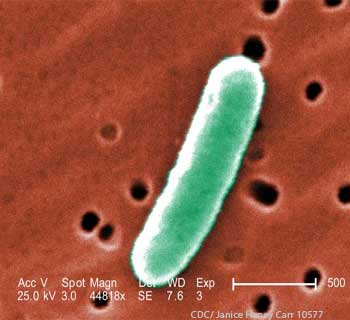E. coli in retail chicken and turkey may be the source of urinary tract infections (UTIs), according to “Escherichia coli ST131-H22 as a Foodborne Uropathogen,” a study recently published in mBio, American Society for Microbiology’s open access journal. The strain responsible for the infections is commonly found in retail meat and poultry but rarely tested for.

A research team, led by Lance B. Price, PhD, director of the Antibiotic Resistance Action Center at the George Washington University Milken Institute School of Public Health, included researchers from multiple centers including the Translational Genomics Research Institute in Flagstaff, AZ; the Department of Veterinary and Biomedical Sciences, College of Veterinary Medicine at the University of Minnesota, St. Paul and the Flagstaff Medical Center.
Over the course of one year, they purchased chicken, turkey and pork purchased from every major grocery chain in Flagstaff, Ariz. and then analyzed it. At the same time, they collected and analyzed urine and blood isolates taken from patients seen at Flagstaff Medical Center.
Eighty percent of the 2,452 meat samples they analyzed were positive for E. coli as were 72 percent of the urine and blood cultures from patients. In the results of the analysis, E. coli ST131 was the strain that most commonly appeared in both the meat and blood samples.
“This particular E. coli strain appears capable of thriving in poultry and causing disease in people,” said Cindy Liu, MD, MPH, PhD, first author of the paper and chief medical officer at ARAC in a press release about the study. “Poultry products could be an important vehicle for bacteria that can cause diseases other than diarrhea.”
E. coli is the source of about 80 percent of UTIs that occur each year in the U.S. and infections that migrate to the bloodstream or the kidneys can be life-threatening. Yet poultry products aren’t tested for E. coli strains that cause these infections.
After this study, researchers are now hoping to measure what proportion of UTIs might be caused by foodborne E. coli.